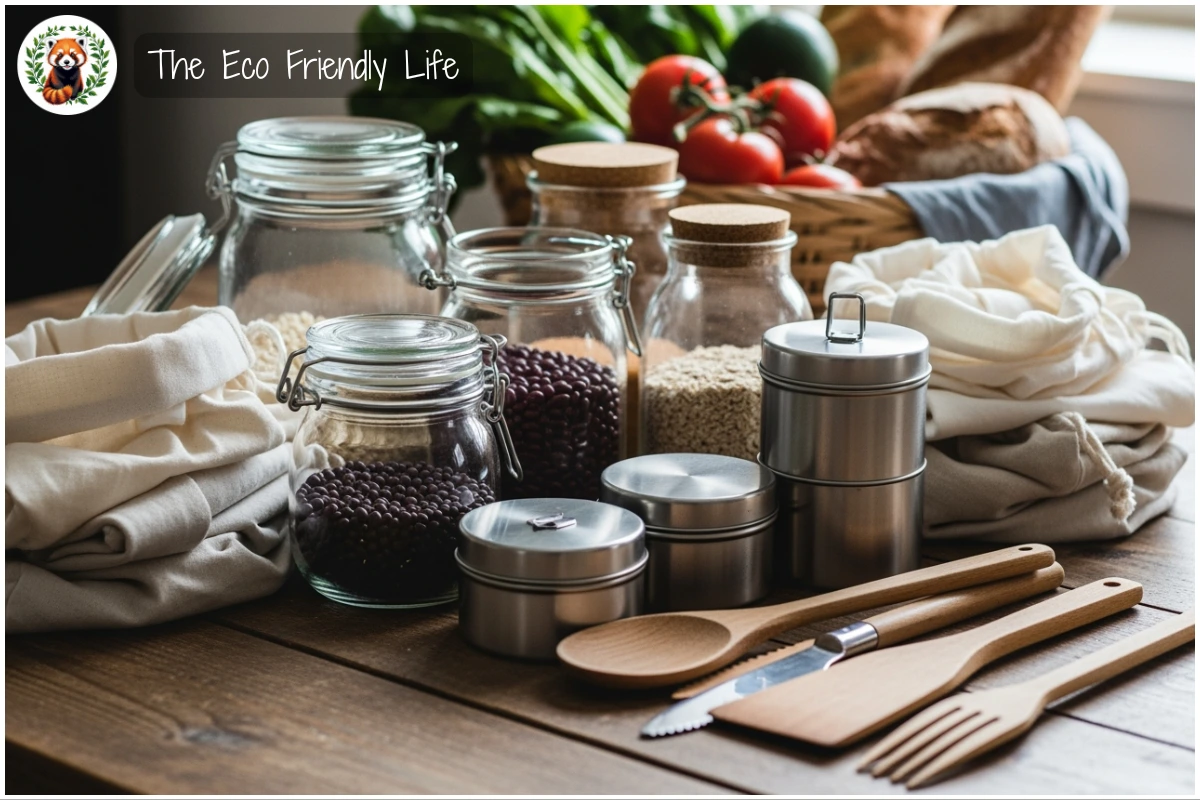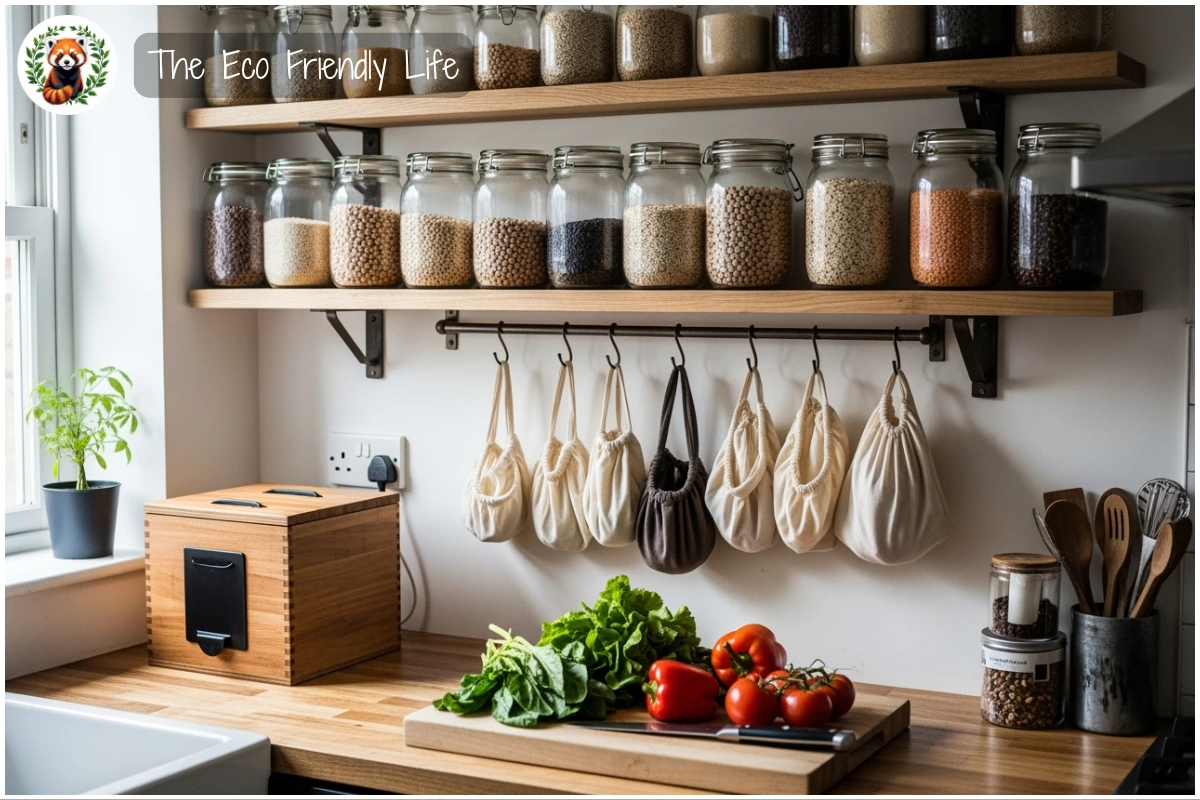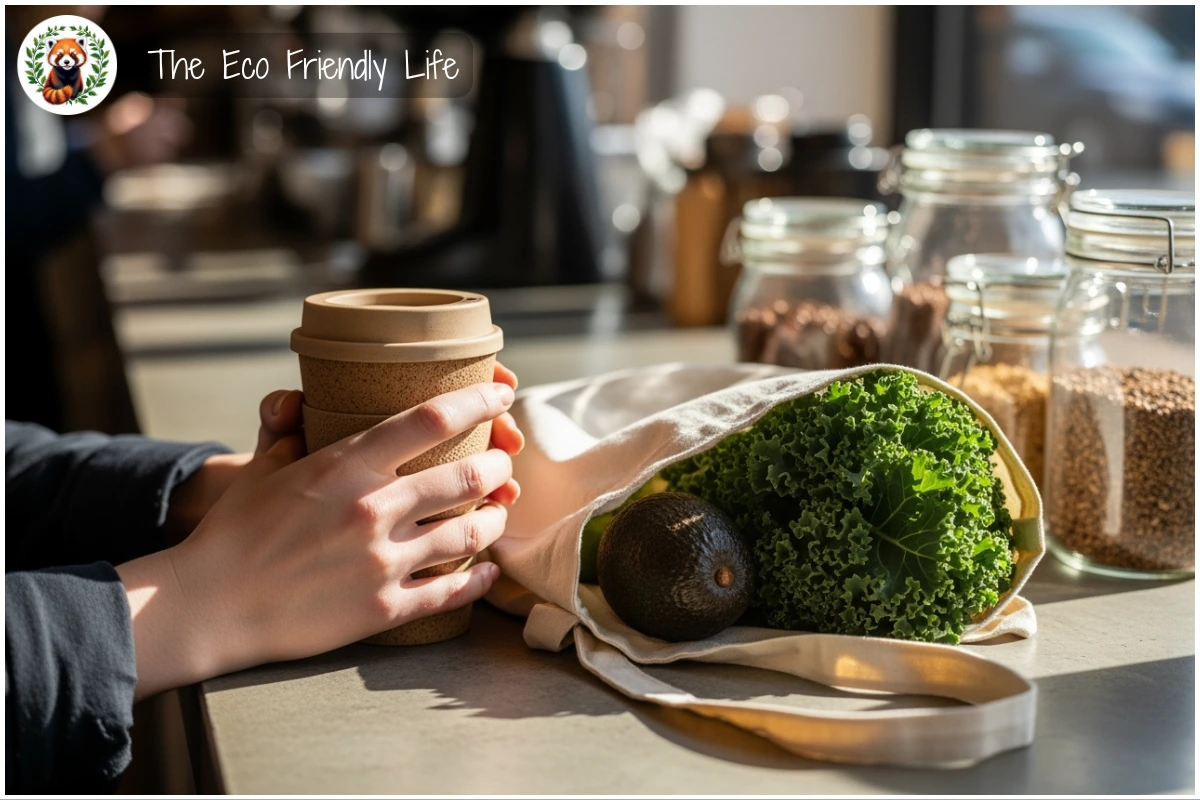Every day, the average person generates waste that adds up to a staggering problem for our planet. With 353 million tonnes of plastic waste created globally each year and landfills overflowing, the need for change has never been more urgent. Yet transitioning to a zero waste lifestyle isn’t about achieving perfection overnight—it’s about making meaningful, manageable changes that collectively create a powerful impact.
I’m Al, and I’m excited to welcome you on this journey toward a more sustainable way of living. Whether you’re motivated by environmental concerns, health benefits, or simply the desire to simplify your life, the zero waste lifestyle offers rewards that extend far beyond reducing your rubbish bin. From saving money to discovering creative solutions and connecting with like-minded communities, this path transforms not just what you throw away, but how you think about consumption itself. Read on to discover practical strategies, actionable tips, and inspiring solutions that will help you embrace a zero waste lifestyle no matter where you are in the world.
Understanding the Zero Waste Philosophy
What Zero Waste Really Means: The zero waste movement isn’t literally about producing zero waste—that’s nearly impossible in our current systems. Instead, it’s a holistic approach to redesigning how we produce, consume, and dispose of products. According to the Zero Waste International Alliance, zero waste focuses on “the conservation of all resources by means of responsible production, consumption, reuse, and recovery of all products, packaging, and materials.” The goal is to minimize waste sent to landfills and incinerators while conserving resources and protecting human health.
Environmental Impact at Stake: The urgency of adopting zero waste practices becomes clear when examining the numbers. Only 9% of plastic waste is successfully recycled worldwide, with the rest ending up in landfills, incinerators, or polluting our natural environments. By embracing zero waste principles alongside better waste management practices like composting and recycling, cities could potentially reduce waste sector emissions by 84%, equivalent to taking all motor vehicles in the United States off the road for one year.
The Five Rs Framework: At the heart of zero waste living are the Five Rs, popularized by zero waste pioneer Bea Johnson: Refuse, Reduce, Reuse, Recycle, and Rot. These principles form a hierarchy, with refusing unnecessary items at the top as the most impactful action, followed by reducing consumption, reusing what you have, recycling what can’t be reused, and composting organic materials. Following this order ensures you’re making the most effective choices for waste reduction.
Beyond Individual Action: While personal choices matter, the zero waste philosophy also recognizes the importance of systemic change. This means supporting businesses that prioritize sustainability, advocating for better waste management policies, and demanding producer responsibility. The movement encourages us to see waste not as an end-of-life problem but as a design flaw that can be addressed at the source.

With this foundational understanding in place, you’re ready to begin implementing zero waste principles in the heart of your home, starting with one of the biggest sources of household waste—the kitchen.
Transforming Your Kitchen into a Zero Waste Hub
Tackling Food Waste First: Kitchens are where much of our household waste originates, with 60% of global food waste occurring at the household level. Each year, households discard 631 million tonnes of perfectly edible food. Combat this by planning meals carefully, storing food properly to extend freshness, and getting creative with leftovers. Before shopping, inventory what you already have and create specific meal plans to avoid overbuying.
Embrace Composting: Transform unavoidable food scraps into nutrient-rich soil rather than sending them to landfill where they generate harmful methane emissions. Whether you have a backyard compost bin, a countertop bokashi system, or access to municipal composting services, this simple practice closes the loop on organic waste. Even apartment dwellers can participate through community composting programs or services that connect people with nearby gardeners who accept food scraps.
Shop Package-Free and in Bulk: One of the most impactful changes you can make is eliminating single-use packaging by bringing your own containers to bulk food stores or refill stations. Bring glass jars, cloth produce bags, and reusable containers to farmers markets and bulk shops. This approach not only reduces waste but also allows you to purchase exactly the quantities you need, minimizing food waste while supporting local suppliers.
Replace Disposable Kitchen Items: Swap paper towels for washable cloth alternatives, replace plastic wrap with beeswax wraps or reusable silicone covers, and choose durable stainless steel or glass containers over disposable plastic bags. These swaps require an initial investment but quickly pay for themselves through repeated use. Swedish dishcloths, bamboo scrub brushes, and natural fiber sponges all perform excellently while being compostable at the end of their life.
Smart Shopping Strategies: Beyond what you buy, consider how you buy it. Refuse excessive packaging at checkout, bring your own reusable bags, and choose products with minimal or recyclable packaging. Support brands that prioritize sustainable packaging practices and consider making staples like bread, yogurt, and condiments from scratch to eliminate packaging entirely.

Now that your kitchen is set up for success, the bathroom presents another opportunity to dramatically reduce waste through simple product swaps and mindful choices.
Creating a Zero Waste Bathroom Sanctuary
Personal Care Product Swaps: Bathrooms accumulate plastic at an alarming rate through disposable items and product packaging. Replace plastic toothbrushes with bamboo alternatives that are compostable, switch from liquid shampoo bottles to shampoo bars that can last over 50 washes, and choose package-free bar soaps for body and face. One shampoo bar can replace approximately two medium-sized plastic bottles, significantly reducing your plastic footprint.
Rethinking Single-Use Items: Trade disposable cotton rounds for washable reusable facial pads, replace plastic razors with durable safety razors that only require blade replacements, and switch from plastic dental floss to silk or bamboo alternatives in refillable glass containers. These changes eliminate ongoing purchases of disposable items while often providing superior quality and performance.
Natural Cleaning Solutions: Many conventional cleaning products come in plastic bottles and contain harsh chemicals. Create your own cleaners using simple ingredients like vinegar, baking soda, and essential oils, or purchase concentrated refills that minimize packaging. Store these solutions in reusable glass spray bottles. Natural ingredients effectively clean while being safer for your family and the environment.
Mindful Menstrual Products: For menstruating individuals, switching to reusable menstrual cups, period underwear, or cloth pads can eliminate thousands of disposable products over a lifetime. These alternatives are healthier, more comfortable for many users, and significantly reduce both waste and long-term costs.

With your home spaces optimized for zero waste living, extending these sustainable practices into your shopping habits, wardrobe choices, and travel routines ensures your commitment goes beyond your front door.
Zero Waste Beyond Your Home
Sustainable Shopping Habits: The principles of refuse and reduce become especially important when shopping. Before purchasing anything, ask yourself if you truly need it, if you can borrow or buy secondhand, and if the item is durable enough to last. When you do buy new, choose quality over quantity and support brands committed to ethical production and minimal packaging. Shopping secondhand through thrift stores, online marketplaces, and clothing swaps extends the life of existing items while saving money.
Building a Minimalist Wardrobe: The fashion industry generates massive waste, with less than 1% of materials used to produce clothing recycled into new clothes. Combat this by building a capsule wardrobe of versatile, high-quality pieces that can be mixed and matched. Learn basic mending skills to extend clothing life, and when items can no longer be worn, repurpose them as cleaning rags or donate them to textile recycling programs.
Zero Waste Travel Essentials: Maintaining waste-free habits while traveling requires planning but is entirely achievable. Pack a reusable water bottle, collapsible food containers, bamboo or metal cutlery set, cloth napkin, and a shopping bag. These items help you avoid single-use plastics at airports, restaurants, and hotels. Bring solid toiletries in reusable containers to eliminate travel-sized plastic bottles and choose accommodations that prioritize sustainability.
Dining Out Consciously: Refuse disposable items like plastic straws, stirrers, and excess napkins when eating out. Many restaurants now welcome customers bringing their own containers for leftovers. Support establishments that prioritize sustainable practices, offer plant-based options, and minimize food waste. Don’t hesitate to communicate your preferences to restaurant staff—consumer demand drives change.
Community Engagement: Zero waste living becomes easier and more enjoyable when you connect with others on the same path. Join local zero waste groups, participate in community repair cafes, attend clothing swaps, and share your knowledge with friends and family. These connections provide support, inspiration, and practical resources while building a culture that values sustainability.
As you implement these practices throughout your daily life, having access to retailers that specialize in zero waste products makes the transition significantly easier and more sustainable.
Retailers That Support the Planet – Our Product Recommendations
Making sustainable choices becomes easier when you have access to retailers that share your values and provide the tools needed for zero waste living. Here are two excellent resources to support your journey:
Our Retailer Recommendation for Adults
Zero Waste Store – Your Complete Sustainable Living Resource
Zero Waste Store has built a community of over 500,000 people committed to reducing waste through sustainable everyday swaps. This comprehensive online shop offers everything from bamboo toothbrushes and reusable paper towels to shampoo bars and plastic-free cleaning supplies, all carefully vetted to ensure quality and environmental integrity. Their Zero Waste Starter Kit is particularly valuable for those beginning their journey, offering customizable bundles of essential items at discounted prices. Every product ships with plastic-free packaging and carbon-neutral shipping, and the company donates to environmental nonprofits as a certified 1% for the Planet member.
Our Retailer Recommendation for Kids/Families
ECOlunchbox – Making Mealtime Sustainable for Families
ECOlunchbox specializes in stainless steel lunch containers and accessories that help families eliminate single-use packaging from meals and snacks. Their durable, toxin-free lunch containers and bento boxes make packing waste-free school lunches and work meals simple and stylish. With products designed for everyone from toddlers to adults, ECOlunchboxes helps divert over 32 million pounds of trash annually that would otherwise be generated from disposable lunch packaging. Their B Corp certification demonstrates commitment to rigorous environmental and social standards, ensuring your purchase supports ethical practices throughout their supply chain.
These retailers exemplify how businesses can facilitate sustainable living while maintaining transparency and accountability. Beyond making thoughtful purchases, implementing simple daily habits creates the foundation for lasting zero waste success.
Everyday Actions That Make a Difference
Refuse What You Don’t Need: The most powerful action in the zero waste hierarchy is simply saying no. Decline free promotional items, refuse shopping bags when you can carry items, turn down plastic straws and unnecessary packaging, and resist impulse purchases. Every item you refuse prevents waste from entering your life in the first place, eliminating the need to manage it later.
Reduce Your Consumption Overall: Evaluate your actual needs versus wants before making purchases. Adopt a waiting period—if you still want something after 30 days, then consider buying it. Unsubscribe from marketing emails that encourage unnecessary consumption, and focus on experiences rather than accumulating possessions. This mindset shift reduces both waste and clutter while often increasing happiness and financial security.
Reuse Creatively: Before discarding anything, consider alternative uses. Glass jars become storage containers, old t-shirts transform into cleaning rags, cardboard boxes serve as organizers, and worn-out towels can be cut into washable napkins. Repair broken items instead of replacing them, and borrow tools or equipment you’ll only use occasionally rather than buying new.
Recycle Responsibly: While recycling ranks lower on the zero waste hierarchy, it’s still valuable for items that can’t be refused, reduced, or reused. Learn your local recycling guidelines thoroughly, as contamination from incorrectly sorted materials can render entire batches unrecyclable. Clean containers before recycling, remove labels when required, and understand that not all materials with recycling symbols are actually recyclable in your area.
Rot Organic Materials: Composting prevents organic waste from generating methane in landfills while creating valuable soil amendment. Food scraps, yard trimmings, paper napkins, and even hair can be composted. If you lack space for traditional composting, explore vermicomposting with worms, bokashi fermentation, or trench composting by burying scraps directly in garden beds.

These fundamental practices form the backbone of zero waste living, and translating them into specific, actionable steps for your daily routine helps make the transition smoother and more sustainable long-term.
Practical Daily Tips You Can Action Today
Here are concrete actions to integrate zero waste principles into your routine:
| Tip | How to Implement | How It Helps |
|---|---|---|
| Carry reusable bags everywhere | Keep folded bags in your car, purse, and by your front door so they’re always available when needed. | Eliminates plastic bag waste from shopping trips and reduces demand for single-use plastics. |
| Bring your own coffee cup | Keep a reusable mug in your car or bag and request drinks in it at cafes; many offer discounts for this. | Prevents disposable cup waste and often saves money through discounts offered by coffee shops. |
| Use cloth napkins and handkerchiefs | Replace paper napkins and tissues with washable cloth alternatives stored conveniently throughout your home. | Eliminates recurring paper waste while adding durability and saving money on constant repurchasing. |
| Buy secondhand first | Check thrift stores, online marketplaces, and community groups before purchasing new items. | Extends product lifespan, reduces manufacturing demand, saves money, and prevents functional items from reaching landfills. |
| Meal plan weekly | Spend 30 minutes each week planning meals and making a specific shopping list based on what you need. | Prevents food waste from spoilage and overbuying while saving time and money throughout the week. |
| Start composting | Set up a simple composting system appropriate for your living situation, whether backyard bin or countertop bokashi. | Diverts organic waste from landfills, reduces methane emissions, and creates valuable soil amendment for plants. |
| Make your own cleaning products | Mix vinegar, baking soda, and essential oils to create effective cleaners in reusable spray bottles. | Reduces plastic bottle waste, eliminates harsh chemicals, and costs significantly less than commercial cleaners. |
| Choose package-free produce | Select loose fruits and vegetables instead of pre-packaged options at grocery stores and farmers markets. | Prevents unnecessary plastic waste and allows you to buy exact quantities needed to minimize food waste. |
| Repair instead of replacing | Learn basic mending, shoe repair, and appliance fixing skills through online tutorials and community repair cafes. | Extends product life dramatically, reduces waste, saves money, and develops valuable self-sufficiency skills. |
| Say no to freebies | Politely decline promotional items, conference swag, and other free things you don’t genuinely need or want. | Prevents clutter and waste while reducing demand that encourages companies to produce these disposable items. |
These practical tips provide immediate actions you can take, and as questions inevitably arise during your zero waste journey, here are answers to some of the most common concerns.
FAQs
Is zero waste living expensive?
While some reusable items require upfront investment, zero waste living typically saves money long-term by eliminating constant repurchases of disposables, reducing impulse buying, and minimizing food waste.
What if I can’t find package-free options in my area?
Start with what’s accessible—reducing packaging where possible, buying larger sizes to minimize waste per use, and supporting retailers through online orders if local options are limited.
How do I handle zero waste when living with family members who aren’t interested?
Lead by example without preaching, focus on changes within your control, share benefits you experience, and gradually introduce swaps that benefit everyone like cost savings and reduced clutter.
Isn’t recycling enough to address waste problems?
Recycling alone is insufficient as only 9% of plastic is actually recycled globally, many materials degrade with each recycling cycle, and recycling still requires significant energy and resources compared to refusing and reducing.
Organizations to Support – Our Recommendations
Supporting organizations working toward systemic change amplifies your individual efforts and helps create the infrastructure needed for widespread zero waste adoption:
- Zero Waste International Alliance is the leading authority on zero waste principles, working toward a world without waste through public education and practical application of zero waste standards. They promote positive alternatives to landfills and incineration, support communities worldwide in implementing zero waste programs, and connect leaders in the field with resources and expertise. Support their mission through membership and engagement with their global network.
- Ocean Conservancy leads efforts to reduce plastic pollution entering our oceans, conducting beach cleanups worldwide through their International Coastal Cleanup program and advocating for policy changes to prevent plastic waste at its source. Their research informs effective solutions while their Clean Swell app empowers individuals to contribute data during cleanup efforts. Support their work to protect marine wildlife and ocean habitats from plastic pollution.
- Ellen MacArthur Foundation accelerates the global transition to a circular economy where materials circulate rather than becoming waste, working with businesses, governments, and academia to redesign systems and eliminate waste through design. Their research and resources guide organizations worldwide in implementing circular economy principles that benefit people, business, and the environment. Support their mission through philanthropic donations that enable systemic change.
These organizations create lasting change by addressing root causes of waste and advocating for systemic solutions that enable individual zero waste efforts to thrive.
Resources and Further Reading
Deepen your understanding and discover additional tools through these expert resources:
- Zero Waste International Alliance offers comprehensive guidance including the Zero Waste Hierarchy, certification standards, and case studies from communities worldwide successfully implementing zero waste programs. Their peer-reviewed materials provide authoritative information for both individuals and policy makers working toward a world without waste.
- Ellen MacArthur Foundation Circular Economy Introduction provides extensive educational materials explaining circular economy principles, business model guides, and case studies showing how organizations are eliminating waste through design. Their resources illustrate how materials can flow in regenerative cycles that benefit the economy and environment.
- Ocean Conservancy Plastics Resources offers comprehensive information on plastic pollution solutions, including science-backed policies that can be implemented to address the crisis. This resource helps you understand and advocate for effective systemic changes to protect ocean health and marine wildlife.
These resources provide both the knowledge and tools needed to continue expanding your zero waste practice while understanding the broader context of the movement.
Our Related Articles

How We Can Help The Environment
The planet we call home faces unprecedented environmental challenges, from climate change and biodiversity loss to pollution and resource depletion. While these issues can feel…
Read MoreConclusion
Transitioning to a zero waste lifestyle is a journey rather than a destination—one that rewards you with financial savings, simplified living, deeper connections with your community, and the satisfaction of knowing you’re protecting the planet for future generations. By understanding the Five Rs framework, implementing practical swaps in your kitchen and bathroom, making conscious choices when shopping and traveling, and supporting businesses and organizations aligned with these values, you create meaningful change that extends far beyond your individual waste bin.
Remember that perfection isn’t the goal; progress is. Every disposable item you refuse, every package you avoid, and every choice you make to reuse rather than discard contributes to the larger movement toward a sustainable future. The challenges we face—from overflowing landfills to ocean plastic pollution—require collective action, and your participation matters.
What’s the first zero waste swap you’re excited to try in your own life? Share your thoughts and experiences in the comments below—we’d love to hear about your journey and learn from your successes and challenges. Together, we can build a community that supports and inspires one another toward a truly sustainable way of living.



